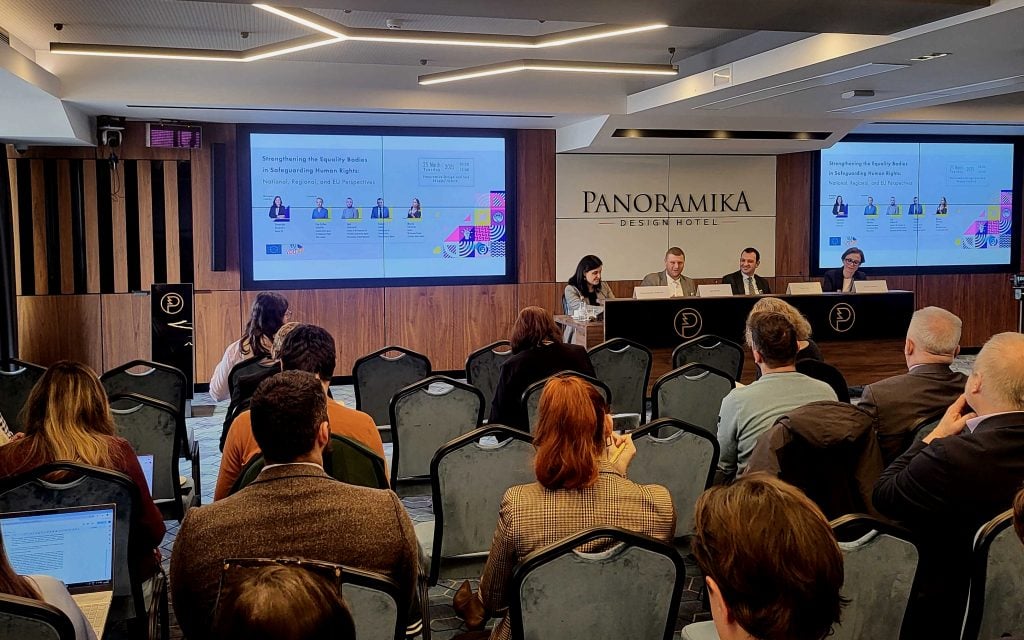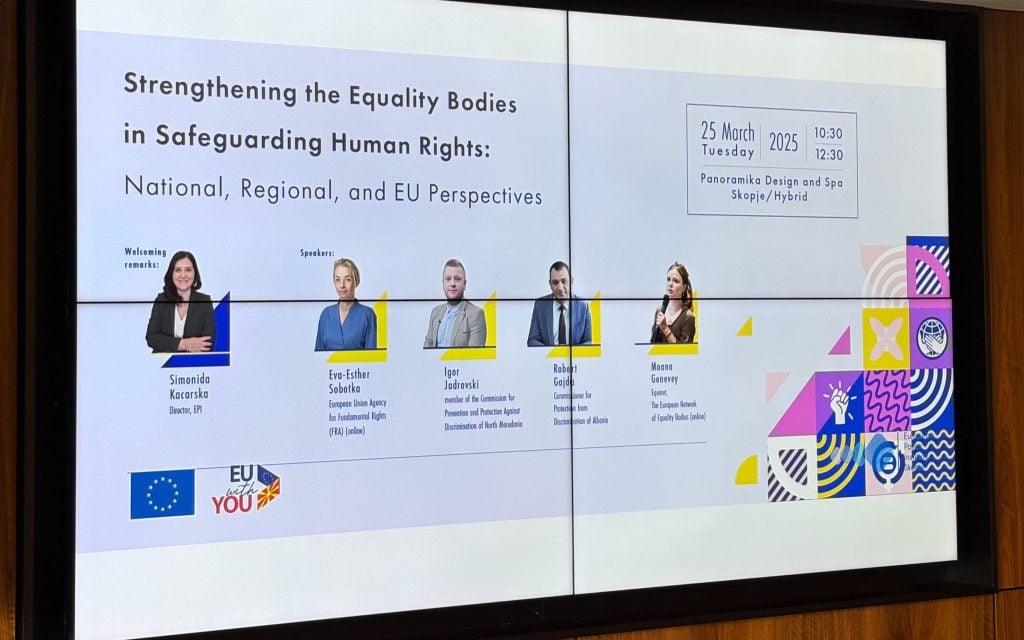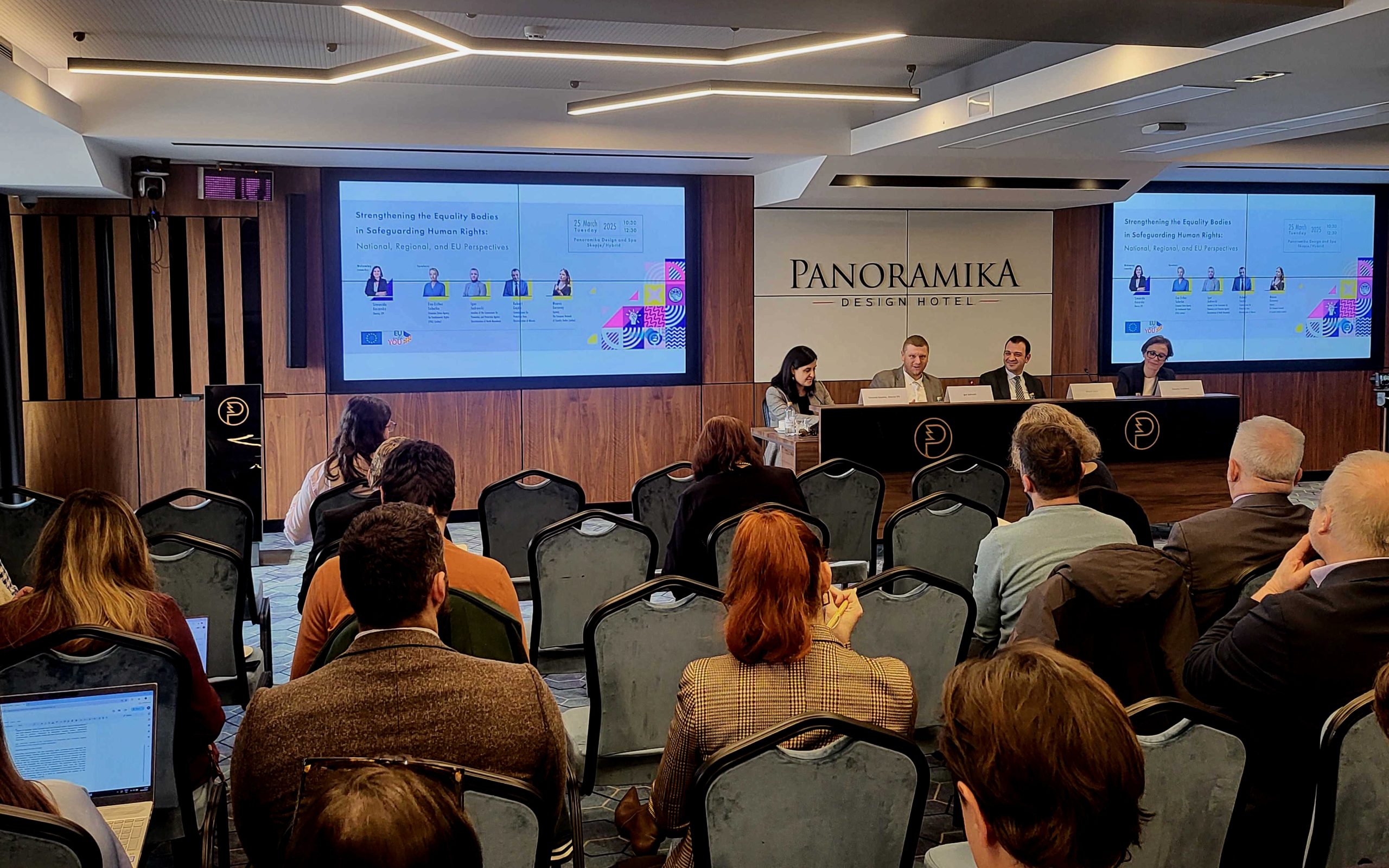
Strengthening Equality Bodies stands as a pivotal step toward safeguarding human rights and advancing EU integration, a key takeaway from the policy dialogue hosted by the European Policy Institute (EPI) in Skopje.
Titled “Strengthening Equality Bodies in Safeguarding Human Rights: National, Regional, and EU Perspectives,” the event brought together experts to address the role of Equality Bodies amid new EU standards. Coinciding with the 2024 adoption of Directive (EU) 2024/1499 and Directive (EU) 2024/1500, the dialogue highlighted the EU’s push for independent, well-funded Equality Bodies to tackle discrimination and promote equality—crucial for both member states and candidate countries like North Macedonia.
The panel featured Eva-Esther Sobotka of the European Union Agency for Fundamental Rights (FRA), Igor Jadrovski from North Macedonia’s Commission for Prevention and Protection Against Discrimination, Robert Gajda, Albania’s Commissioner for Protection from Discrimination, and Moana Genevey of Equinet, the European Network of Equality Bodies. Moderated by Natasha Boshkova of the EU Support for Rule of Law project, the discussion engaged representatives from equality bodies, state institutions, civil society, academia, and the EU Delegation.

In addition, our researcher Ardita Vejseli presented the policy brief “Strengthening Equality Bodies in North Macedonia: Aligning with EU Directives 2024/1499 and 2024/1500” which analyses the relevance and implications of EU Directives 2024/1499 and 2024/1500 for North Macedonia, focusing on aligning the country’s equality body—the Commission for Prevention and Protection against Discrimination (CPPD)—with new EU standards. Its objective is to assess the current legal and institutional framework governing the CPPD, identify gaps in its independence, resources, and operational effectiveness, and provide strategic recommendations for reform. Key proposals of the policy brief include ensuring financial and institutional independence by enabling direct budgetary planning through the Assembly, improving the appointment process to guarantee merit-based and diverse representation, enhancing litigation powers, and expanding accessibility and outreach.
Participants at the discussion explored challenges like financial limitations, staffing shortages, and political pressures facing Equality Bodies, with a focus on North Macedonia’s Commission for Prevention and Protection Against Discrimination. The new EU directives, updating prior laws such as Directive 2006/54/EC and Directive 2010/41/EU, set benchmarks for independence and resources, enabling these bodies to support victims and promote equal treatment. Best practices from the region and EU were shared as models for reform.
The event underscored the need for collaboration to bolster human rights frameworks—a vital step for North Macedonia’s EU accession.
This dialogue is part of the EU-funded project “Building Bridges for a Common Future: Rule of Law in View of EU Accession.”
Key Takeaways
- The EU directives adopted in 2024 marked a turning point for Equality Bodies, requiring states to ensure independence, adequate funding, and expanded mandates.
- National bodies in the Western Balkans, particularly North Macedonia and Albania, share similar challenges, including limited resources, political interference, and difficulties in law implementation.
- Collaboration between Equality Bodies, civil society, and EU institutions is essential for building a resilient and rights-based framework across Europe.
- Strengthening Equality Bodies is not only a matter of protecting rights but also a strategic requirement for EU accession and safeguarding the rule of law in candidate countries.






